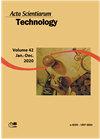Detection of retinal diseases from ophthalmological images based on convolutional neural network architecture
IF 0.6
4区 综合性期刊
Q3 MULTIDISCIPLINARY SCIENCES
引用次数: 1
Abstract
The retina is an eye layer that incorporates light- and color-sensitive cells as well as nerve fibers. It collects light and distributes it to the brain for image processing through the use of the optic nerve. Diseases that end up causing vision loss and blindness are generated by retinal ailments. As a result, it is imperative to diagnose and treat certain disorders as early as possible. Optical coherence tomography (OCT), an angiography imaging technique, is operated to help diagnose retinal disorders. Deep learning approaches, which are extensively utilized, have now become a convenient way for diagnosing retinal illnesses through OCT images as a result of their effective outcomes in interpreting medical images. To diagnose retinal disorders utilizing OCT scans, this investigation developed a hybrid methodology based on image pre-processing and convolutional neural networks (CNNs) (a deep learning method). Image pre-processing techniques including background filling, resizing, noise reduction, and highlighting are exercised at the pre-processing stage. The segmentation process provides a new CNN architecture with five convolution layers that does have a low computational cost. Compared to other publications using the same data set, the proposed method seems to have a success rate of 99.48 percent in the detection of retinal disorders, closing a significant gap in the literature. The proposed approach has the advantage of maintaining low computing costs in comparison to other studies in the literature. When the conclusions are regarded, it is noticed that the suggested method might be exerted as a decision support system to assist physicians in the clinical context during the diagnosis of retinal disorders.基于卷积神经网络架构的眼科图像视网膜疾病检测
视网膜是眼睛的一层,包括对光和颜色敏感的细胞以及神经纤维。它收集光线,并通过视神经将其分配给大脑进行图像处理。最终导致视力丧失和失明的疾病是由视网膜疾病引起的。因此,必须尽早诊断和治疗某些疾病。光学相干断层扫描(OCT)是一种血管成像技术,用于帮助诊断视网膜疾病。深度学习方法被广泛使用,由于其在解释医学图像方面的有效结果,现在已成为通过OCT图像诊断视网膜疾病的一种方便方法。为了利用OCT扫描诊断视网膜疾病,本研究开发了一种基于图像预处理和卷积神经网络(cnn)(一种深度学习方法)的混合方法。图像预处理技术包括背景填充、调整大小、降噪和突出显示。分割过程提供了一种具有五个卷积层的新CNN架构,其计算成本较低。与使用相同数据集的其他出版物相比,所提出的方法在检测视网膜疾病方面的成功率似乎达到99.48%,缩小了文献中的显着差距。与文献中的其他研究相比,所提出的方法具有保持低计算成本的优点。考虑到这些结论,我们注意到所建议的方法可以作为一种决策支持系统,在临床背景下协助医生诊断视网膜疾病。
本文章由计算机程序翻译,如有差异,请以英文原文为准。
求助全文
约1分钟内获得全文
求助全文
来源期刊

Acta Scientiarum-technology
综合性期刊-综合性期刊
CiteScore
1.40
自引率
12.50%
发文量
60
审稿时长
6-12 weeks
期刊介绍:
The journal publishes original articles in all areas of Technology, including: Engineerings, Physics, Chemistry, Mathematics, Statistics, Geosciences and Computation Sciences.
To establish the public inscription of knowledge and its preservation; To publish results of research comprising ideas and new scientific suggestions; To publicize worldwide information and knowledge produced by the scientific community; To speech the process of scientific communication in Technology.
 求助内容:
求助内容: 应助结果提醒方式:
应助结果提醒方式:


